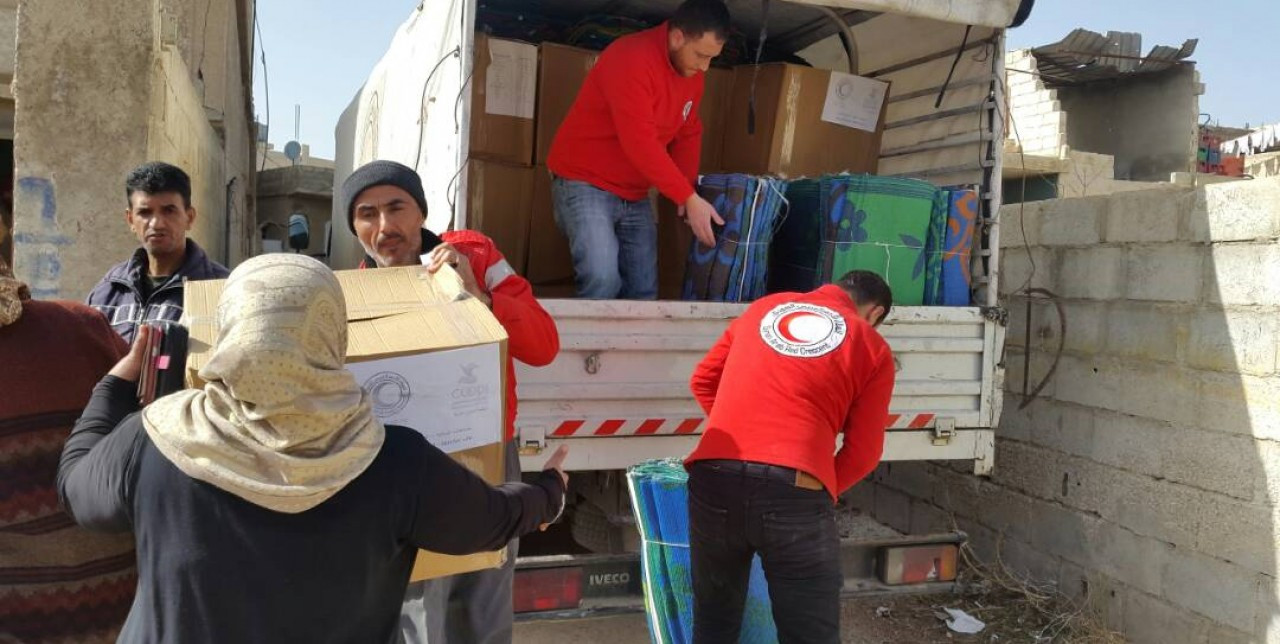26-02-2018 | di COOPI
SARCS Damascus: hygiene kits to prevent diseases
After 7 years of conflict, the security and humanitarian situation in Syria has become worse and worse. The conflict has caused significant internal displacement and a massive damage to homes, schools, hospitals and many other infrastructures, leaving millions of people in need of assistance. Among the most relevant figures to represent the concerns, the following ones are encountered: 13.1mln of persons in need; 5,6mln in acute need; 8.2mln of persons at risk of incurring in explosive hazards; 6,5mln of persons are food insecure, 30% of children out of school; 5,6mln refugees; 6,1mln Internally Displaced Persons.
COOPI is active with its humanitarian action in Syria (Damascus) since January 2017 with a Food Security/Livelihood project in Rural Damascus ( Qatana) aiming at delivering first assistance to more than 2.000 households but also to provide them with tools to bring them back to auto-sustainable life, in the areas in which this is already possible: Rural Damascus is quite an extended area Into details, throughout January 2018, COOPI distributed 750 hygiene kits to the vulnerable families (for a total of 3.750 people) in Qatana, rural Damascus. The activity- which was carried out with the support of 60 local volunteers- is part of the project "Food support in response to the Syrian crisis in the Great Damascus" , implemented in collaboration with Syrian Arab Red Crescent (SARC) and financed by AICS (the Italian Agency for Development Cooperation). Each kit included a two-liter detergent bottle for house surfaces, a one-liter detergent bottle for clothes, 2 bottles of dish-cleaning product, but also a bucket, a mop, some rags, some products for personal hygiene and a 20-liter tank for the storage of clean water.
A pre-project study had highlighted the importance of correct hygiene-related practices to contrast the widespread danger of epidemics- a phenomenon caused by a general lack of knowledge in matter of good practices and the use of contaminated water amongst the majority (69%) of vulnerable local communities.
The distribution of kits was therefore complemented with a training in hygiene and sanitation with the purpose of improving the conditions of the households, with a focus being put on the storage and cooking of the same vegetables that were produced through other activity projects [link here] back in November and December. Dr. Mayada Kharouf- a specialist in hygiene- provided 5 trainings to more than 800 people in different locations such as Qatana, Artouz, Jdet Artouz, Sabura an Khen Elshish (the latter two being military-encircled areas in Rural Damascus suffering 7 years of isolation from the rest of the country).
Special attention was given to sustainable and hygienic ways of cooking vegetables with clean water, organic fertilizers and pesticides. This is important especially because it is a common amongst the beneficiary families to water their seeds with sewage water because of the scarcity of resources- a habit that favours the spreading of diseases.
The target of the training selected based on vulnerability criteria, among which: households headed by women, households with more than 4 children, displaced families, people with specific needs.To support persons in need and in acute need with hygienic awareness and tools is very important to prevent epidemics which are very likely to happen during and after armed conflicts.




 Syria
Syria